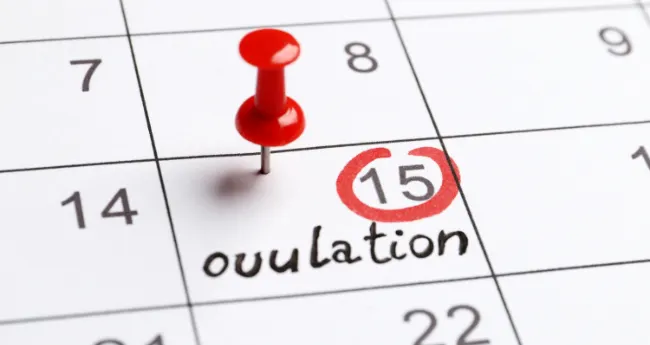
Why it is Normal for Your Period Date to Change
If you’ve ever found yourself worrying because your period didn’t arrive on the exact same day it did last month, you’re not alone. Many people believe periods should always follow a perfect calendar schedule, but in reality, it’s completely normal for your period date to shift a little from month to month. In fact, your cycle is influenced by several natural factors, ranging from hormones and lifestyle habits to stress and health conditions.
In this blog, we’ll explain why your period date changes, what’s considered normal, and when to see a doctor.
Understanding the Menstrual Cycle
A typical menstrual cycle lasts anywhere from 21 to 35 days. That means your period could come as early as three weeks after the last one or as late as five weeks, and still be normal.
The cycle starts on the first day of your period and ends the day before your next one begins. In the middle, ovulation (the release of an egg) occurs. But here’s the thing: ovulation doesn’t always happen at the same time each month. This little variation is one of the biggest reasons your period date changes.
Reasons Why Your Period Date Can Change
-
Hormones Run the Show
Your period is controlled by hormones like estrogen and progesterone. These hormones rise and fall throughout the month, guiding ovulation and menstruation. If your hormones fluctuate a little differently one month say, ovulation happens later, your period date will naturally shift as well.
-
Stress and Emotions
Ever noticed your period comes late after a stressful month at work or school? That’s because stress triggers your body to release cortisol, a hormone that can mess with the delicate balance of your reproductive hormones. Even everyday stressors like exams, arguments, or travel can delay or bring forward your period.
-
Lifestyle Habits
What you eat, how much you sleep, and your daily routine also affects your period dates. For example:
- Diet changes (like sudden fasting or overeating) can disrupt your hormones.
- Too much alcohol or caffeine may also affect your period timing.
- Jet lag (fatigue and irritability) and shift work can confuse your body’s internal clock, shifting your cycle.
-
Weight and Exercise
Your body fat plays a role in making reproductive hormones.
- Rapid weight loss or extreme dieting can lower estrogen, delaying or even stopping your periods.
- Excess weight gain may cause extra estrogen, leading to irregular cycles.
- Intense workouts (like training for a marathon or heavy gym sessions) can also put your body under stress, leading to change in period dates or missed periods.
-
Medications and Birth Control
Hormonal birth control (pills, injections, implants, IUDs) is designed to alter your cycle. Some methods make your periods lighter, later, or stop them altogether. Even non-contraceptive medications, like those for thyroid or mental health conditions, may affect your period dates.
-
Natural Life Stages
Your cycle changes at different stages of life:
- Puberty: It’s normal for periods to be irregular for the first few years after they begin.
- Post-pregnancy: After giving birth, especially if breastfeeding, periods may take months to return and can be irregular at first.
- Perimenopause: As menopause approaches, cycles often become less predictable, shorter, longer, lighter, or heavier.
-
Underlying Health Conditions
Sometimes, irregular periods may point to health conditions like:
- Polycystic Ovary Syndrome (PCOS) – affects ovulation and cycle regularity.
- Thyroid problems – both overactive and underactive thyroids disrupt hormones.
- Fibroids or endometriosis – can cause heavy, irregular bleeding.
- Pelvic Inflammatory Disease (PID) – may affect cycle timing.
If your cycles are very unpredictable or accompanied by severe pain, it’s best to check with a doctor.
How Much Change Is Considered “Normal”?
Small changes are nothing to worry about. Your period might come a few days earlier one month and a few days later the next. Doctors usually consider it normal if your cycle length varies within about 7–9 days each month.
For example:
- One month your cycle is 28 days.
- Next month it’s 31 days.
- That’s still within the “normal” range.
When Should You See a Doctor?
It’s a good idea to talk to a healthcare provider if:
- Your cycle is shorter than 21 days or longer than 38 days consistently.
- You frequently skip periods (without pregnancy).
- You have very heavy bleeding (soaking through pads/tampons in less than 2 hours).
- You experience severe cramps, dizziness, or fainting with your periods.
- You haven’t had a period for 3 months in a row (and you’re not pregnant).
These may be signs of a medical condition that needs attention.
Tips for Tracking and Managing Your Period
- Use a period tracking app (like Flo, Clue, or a simple calendar) to monitor changes.
- Note lifestyle factors (like stress, travel, or diet) that may affect your cycle.
- Practice self-care – sleep well, eat balanced meals, and manage stress.
- Stay hydrated and active to help your body stay in balance.
Conclusion
Your period doesn’t have to follow the exact same date every single month to be considered “normal.” A little variation is part of how your body naturally works. Hormones, stress, lifestyle habits, and even life stages all play a role in shifting your cycle.
The key is to know what’s normal for you. Tracking your cycle helps you understand your body better, and also alerts you if something feels off. Remember: small changes are usually harmless, but if your periods are very irregular or causing concern, a doctor’s visit can give you clarity and peace of mind.
All Categories
Recent Posts
Why SDG 4 Cannot Be Achieved Without Ending Period Poverty
Tags
Give them a helping hand
Every donation fuels our mission to combat period poverty. Your generosity brings us closer to menstrual equity.
+234-909-482-1642
inquiries@blossomflow.org




